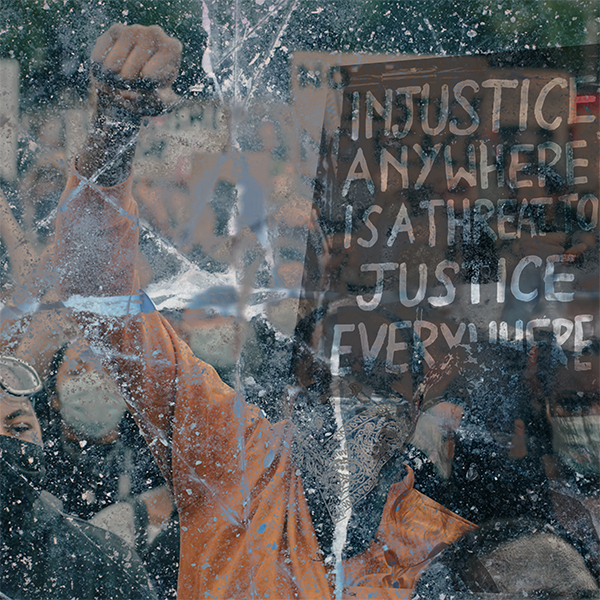Becoming “Homemakers” in Our Sacred Neighborhoods
What could happen in our neighborhoods if Evangelical Christians began to think more deeply and theologically about their relationship to the specific place where they live? Could it lead us to more reflective and active engagement, both locally in our neighborhoods and in our world?
Gnostic Influences on Western Christianity
The problem is that Evangelical Christianity has expressed more of a Gnosticism than a grounded, incarnational practice when it comes to a theology of place.
However, instead of seeing as Gnosticism does—that some parts of life are sacred while others are profane—if we absorbed the truth and consequences of the Incarnation fully, we would see everything in our world as sacred.
In other words, nothing is profane. Every place in our world is a forum for the presence, redemptive activity, and beauty of God to be discovered.
Every place in our world is a forum for the presence of God. Share on XBut this is often not the instinct of Western Christianity. Our Gnostic-influenced spirituality has manifested itself in the prioritization of “spiritual” things and a distaste for earthly materials and goods.
Roger Helland and Len Hjalmarson in Missional Spirituality say:
Christians today regularly refer to their culture as the secular world—a dark and non-Christian place. It’s where one holds a secular job, attends a secular university, listens to secular music and watches secular movies and TV. Even though all cultures express religion and spirituality in one form or another, the so-called secular world is often wrongly perceived as a separate realm disenchanted from the sacred realm where the God way up there and Christian faith reside. Some Christians place culture in one realm and place the institutional church, Christian faith and their personal spiritual life in another realm.
This kind of thinking affects our relationship with the places and neighborhoods where we live. Instead of thinking about how we can love and work with God in our neighborhoods for their redemption, we focus on the church, while church activities keep us busy.
There is nothing wrong with attending to our churches. However, what does it look like to bring the shalom of God to our local places? If we believe that God is at work outside the church and no place is profane, how can we participate with Father, Son and Spirit in those places? How can we join in the work He is already doing to bring beauty, reconciliation, peace, mercy, and justice to our local communities where we live?
Bringing Shalom to the Neighborhood
We need to ask ourselves questions such as:
- Do I believe that my local neighborhood is a place where God is at work to redeem not only the people, but also the land, buildings, and community?
- If God is at work to reconcile all things in Christ, does this include my physical neighborhood?
- Which aspects of my neighborhood will I see in the new creation when Christ restores all things?
We must ask ourselves these kinds of questions about the community in which God has placed us in order to challenge any dualism and un-Christian Gnosticism within us that is skewing the radically incarnational nature of our faith.
We know from Revelation 21:2 that at the consummation of all things, we will not “go up” to heaven but that God will come down to us, and that our new dwelling place will take the form of a city on this earth. We must begin to see this world as our home, even though it is not yet fully restored. Therefore, there is a universal, God-led building plan that we are engaging with even as we live in a fallen world, which is in the process of being restored. We are “homemakers” in our exile.
How can we be good homemakers in our local neighborhoods? This is the work of living and bringing shalom to our world. In her book The Very Good Gospel: How Everything Wrong Can Be Made Right, Lisa Sharon Harper says that in Scripture, shalom means well-being, wholeness, and the perfection of God’s creation, abundance and peace. It is used as a greeting. It proclaims the absence of conflicts. And it can also mean the restoration of relationships, healing and peace. She writes,
The peace of self is dependent upon the peace of the other. God created the world in a web of relationships that overflowed with forceful goodness. These relationships are far-reaching: between humanity and God, between humanity and self, between genders, between humanity and the rest of creation, within families, between ethnic groups or races, and between nations. These relationships were very good in the beginning. One word characterized them all: shalom…Shalom is the stuff of the kingdom.
Instead of practicing a Gnostic Christianity, or holding to an eschatology that leads us to thinking that we will ultimately live a disembodied existence in a ghostly place called heaven, we must see this world as our home and engage in homemaking practices or habits that will help us work with God to bring his rule on earth. And we must do this locally because the local space is where God has placed us to be God’s shalom to our neighbors as we work together for God’s rule to manifest.
The local space is where God has placed us to be God's shalom to our neighbors. Share on XHomemaking and the Kingdom of God
As we yearn for God’s kingdom to come, we do not simply pray those words “Father, Your Kingdom come.” As crucial as this is, we also participate with Father, Son, and Spirit to do the work of a missionary in the local space. To be a missionary is to be a homemaker. As Walsh and Bouma-Prediger say in their excellent book, Beyond Homelessness: Christian Faith in a Culture of Displacement:
To be a missionary is to be a homemaker. Share on XSo the sojourner is a homemaker, but a homemaker who is potentially on the move. And the homeland for which the sojourner yearns is not some other world, but this world redeemed and transfigured…. Because the kingdom of God is not yet realized in its fullness, the sojourner yearns for its consummation. And that is why Christian sojourners are aching visionaries who bear witness to and work for a future of shalom…we are not immigrants or refugees, exiles or migrants, tourists, post modern nomads. If we understand ourselves properly, then in contrast to all of them we are, in a real sense, at home. But this being at home is a posture, a way of being in the world. It is a journeying homemaking.
We are “aching visionaries” longing for God’s rule, and at the same time, working with God on His mission now to establish that rule.
What are some homemaking practices that we can be engaging in today in our local neighborhoods as we wait for the consummation of the reign of God? I will address this in my next post.
(For more, look for my book Urban Spirituality: Embodying God’s Mission in the Neighborhood which covers the topics in this post. It will be out in November.)



